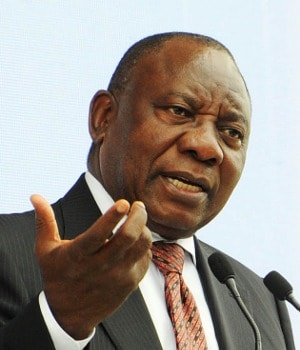
Ferro alloy producers in South Africa are on their knees and are hoping that an intervention from President Cyril Ramaphosa will bring relief from the suffocating grip of high electricity prices.
According to a letter the industry body, the Ferro Alloy Producers’ Association (Fapa), sent to Ramaphosa, 17 500 direct and 120 000 indirect job opportunities are on the line.
The industry pays more than R15 billion a year to Eskom and uses more than 10% of the power that Eskom supplies.
Fapa members include Samancor Chrome, Glencore, Richards Bay Minerals, Assmang, South32, Silicon Smelters, Transalloys and SA Calcium Carbide.
Electricity costs account for about 40% of the industry’s input costs and its products are largely exported because so many domestic clients have disappeared as a result of runaway costs.
Silicon Smelters was the first intensive power consumer that concluded an agreement with Eskom in 2017 to buy power at a discounted rate.
National Energy Regulator of SA (Nersa) approved the agreement for a period of two years.
The concession was made only for companies on the verge of closing.
Silicon Smelters’ CEO, Nellis Bester, said this put the company in a position to continue producing from last year; in 2017 it had been forced to close down an entire plant.
He said more than 200 direct and more than 3 500 indirect job opportunities were saved as a result of the agreement.
It was a win-win situation, because it ensured income for Eskom from electricity sales, especially during the night, when the demand from other users was low. Silicon Smelters could keep its furnaces and workforce going on a 24-hour basis.
Bester said that if Silicon Smelters could not get its tariff agreement with Eskom extended or ensure a similar arrangement, the group would battle to continue profitably producing silicon in South Africa.
“Silicon Smelters is the only remaining silicon smelter on the continent,” he said. “Today the entire metallurgic market is on its back.”
Bester said silicon producers had been losing a lot of money since the worldwide collapse of the silicon market from late last year.
“It’s the worst it has been in 10 years and input costs rise every year,” he said.
China expanded its own production capacity, resulting in no demand for imports from South Africa.
In the US President Donald Trump halted imports to protect local producers, which meant exporters were all targeting markets in Europe.
This had led to a surplus, which had caused the price to collapse, he said.
South African producers compete internationally with producers who paid far less for electricity and it is a commodity that has a set international price.
Similar metallurgical smelters paid about $40 to $45 per megawatt-hour (MWh) in the US, $45 to $50 in Spain and less than $35 in France.
Competitors in South Africa had to cough up about $65 to $70 at Eskom’s megaflex rates.
Bester said that to compete with most Western nations, the local industry would have to be allowed to pay less than $40/MWh for electricity.
That went for silicon, chrome, steel and manganese producers, he said.
The industry adds value to local ore, which is central to the government’s policy framework, but it is in need of urgent assistance. The focus shouldn’t be solely on job creation, but on the retention of the workforce, he said.
Chabisi Motloung, chairperson of Fapa, said five members had applied to Eskom for a similar agreement to that of Silicon Smelters, but they were turned down earlier this year.
Possibly, that’s because the discount they are requesting was too far removed from Eskom’s generating costs, said Motloung.
Fapa said Eskom’s generating costs were exceptionally high, due to the excessive use of diesel turbines and ongoing maintenance problems.
In the first quarter, Fapa made a presentation to Eskom’s chief operating officer, Jan Oberholzer, with suggestions about how its members could cooperate with Eskom to benefit all.
The association hopes for a generally lower tariff for intensive users, which Eskom has been working on for more than a year.
The question is being asked why a special tariff, which is in line with other countries, can’t be implemented for all the metallurgic producers.
Eskom had been working on the tariff proposal for more than a year, but believes that the government could make up the loss of income through a subsidy or other mechanism. The energy regulator Nersa would have to approve it.
Motloung said the industry was well aware of how slowly the wheels of government turned and said this was problematic because “if there’s one thing the industry does not have, it is time”.
He said the presidency had informed them that it was working on setting a date for an industry meeting involving various role players and disciplines.
Industry leaders fear that the entire metallurgic industry will not be able to continue for more than two years, taking into account increases in electricity tariffs, the additional burden of carbon taxes and the wage expectations of labour.




 Publications
Publications
 Partners
Partners








